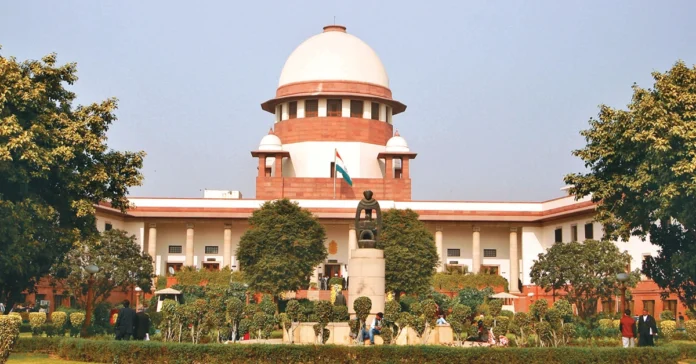The Supreme Court on Monday rejected a petition that challenged the nomination of five Members of Legislative Assembly (MLAs) to the Jammu and Kashmir Assembly by the Lieutenant Governor of the Union Territory.
The Bench of Justice Sanjiv Khanna and Justice PV Sanjay Kumar refused to entertain the petition moved under Article 32 of the Constitution on the grounds that when the petitions were filed directly in the top court of the country bypassing the respective High Court, many things were left out.
Noting that it was not expressing any opinion on merits, the Apex Court directed the petitioner to first approach the jurisdictional High Court (in this case, the Jammu & Kashmir and Ladakh High Court) by way of a writ petition under Article 226 of the Constitution.
The J&K Assembly has 90 elected members. The Jammu and Kashmir Reorganisation Act of 2019 envisages the nomination of five or more MLAs by the LG to represent the displaced Kashmiri people and those from Pak-occupied Kashmir (PoK). This raises the majority mark in the Assembly from 45 to 48.
In the recently-concluded Assembly elections, the INDIA coalition of the J&K National Conference, Indian National Congress and the Communist Party of India (Marxist) secured 49 seats in the Assembly, putting them above the majority mark of 48, even in case of nomination of five MLAs.
Appearing for petitioner Ravinder Kumar Sharma, Senior Advocate Abhishek Manu Singhvi contended that such nomination by an unelected LG could throttle the electoral verdict. A nomination by the Central government would mean a person who won the election could be negated.
The Senior Counsel further asked what would happen if this number of nominated MLAs was tomorrow increased to 10 by way of an amendment, as was done to increase it from 2 to 5.
However, the Apex Court said that the power objected to has not been exercised yet.


